Civil servant Charlie Pearson was diagnosed with a grade 2 astrocytoma after suffering a seizure in July 2019. The 26-year-old, from Hockley, Essex, underwent a debulking surgery and went four years without recurrence. However, in July 2023, he suffered another seizure and was diagnosed with a glioblastoma (GBM). Having since had an awake craniotomy and combined radiotherapy and chemotherapy, he is now approaching his last of six rounds of temozolomide (TMZ) chemo.
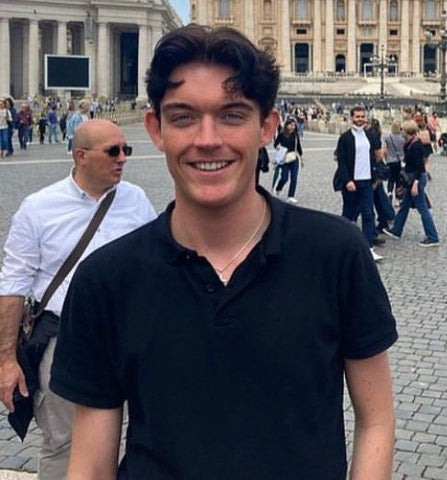
Charlie tells his story …
I’ve known I’m living on borrowed time for years, ever since I was diagnosed with a grade 2 astrocytoma. Finding out about it was a shock but I went back to work as soon as I could after treatment and even got promoted. I managed to go four years without recurrence and was flying professionally, but that all changed last year when I got the devastating news I had a glioblastoma (GBM) and I didn’t have long left.
My brain tumour story starts with me having a seizure at home in July 2019. It was late and my bedroom door was locked at the time. I remember trying to get out as my mum was trying to get in. Eventually I managed to unlock it but it was terrifying and only added to the chaos and confusion of the situation. Things are a bit of a blur after that but I do know I was taken to Southend University Hospital, in Essex, by ambulance. Initially, I was suspected of having meningitis but a scan revealed the awful truth, that I had brain tumour. I can’t even explain how bad I felt in myself.
I didn’t know what to do and felt like giving up then and there.
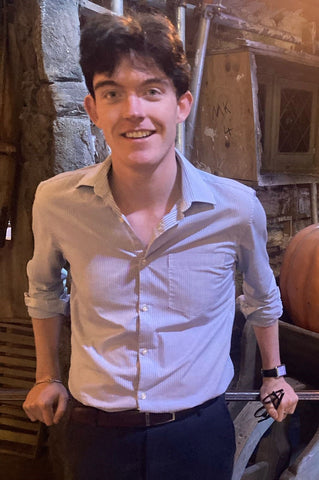
But I didn’t give up. Instead, the following month I had surgery at Queen’s Hospital, Romford. It was scary but I wanted the tumour out of my head. Unfortunately, whilst I was recovering in hospital, I developed an infection in my bone flap and had to have it removed. This left me with a massive dip in my head until my follow-up surgery at King George Hospital, Ilford, around six months later.
Incredibly, a 3D scanner was used to replicate the curvature of my bone flap.
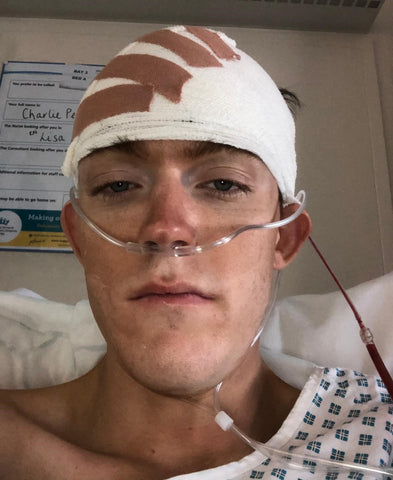
After my recovery, I was having monitoring scans every six months and after a while these became annual. I always had the nagging feeling that something could change but I went about my life as best I could and it wasn’t until years later it finally happened. I started having a seizure whilst on the tube’s Jubilee line in July 2023. I could feel it coming on because I suddenly became hot and my arms started feeling strange. I disembarked at a station where a paramedic happened to be waiting on the platform.
He instantly recognised what was happening and I remember hearing him shout ‘he’s having a seizure’ before I blacked out.

When I came to, I was at St Thomas’ Hospital, in Central London. I was given an MRI scan but I still hadn’t had the results by the time I left. I’m glad that happened really because it gave me longer without knowing and allowed me to enjoy one last holiday with my partner, Ollie.
Whilst we were in Portugal, my face drooped on one side, I found I wasn’t able to speak for 20 minutes at a time and I began walking with a limp.
After getting home and having another seizure, I was taken back to Queen’s. I asked for the results of my last MRI and it was then I learned they’d found something. I was admitted for at least a week and scheduled for another surgery, during which time the consultant who had performed my first operation came to see me. He said: ‘Charlie, it looks like your tumour has transformed into something that doesn’t look great’.
It had spread across both sides of my brain.
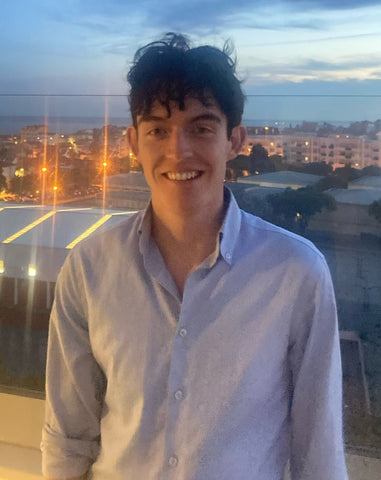
In August, I had an awake craniotomy and was asked to perform tasks whilst my surgery was carried out. It was unbelievably surreal and I found it strangely exciting as a result. I just couldn’t believe my brain could be operated on whilst I was awake and found the whole thing fascinating. My speech was tested by giving me questions to answer or tasks such as counting to 10 and my movement was tested by asking me to do different things with my arms.
I thought it was really interesting from a clinical perspective.
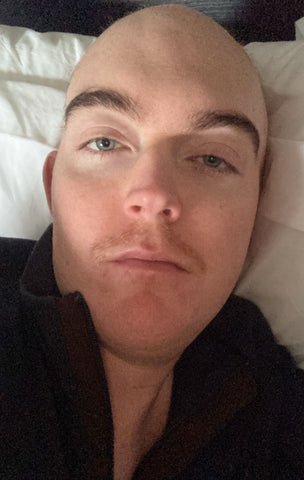
Following my recovery and subsequent GBM diagnosis, I went straight into combined radiotherapy and chemotherapy. I now have just one of six rounds of temozolomide (TMZ) chemo remaining, if my platelet levels allow. I don’t think I tolerate it very well because it’s made me horribly sick and I had to have a reduced dose on my fourth round because my platelet level was so low, but they did eventually return to normal. The size of my treatment area did mean I lost all of my hair, and pretty quickly. It was really upsetting but I knew complaining about it wasn’t going to change anything, so I dealt with it as best I could.
I’m hopeful of having more time with those I love but I’m preparing for the inevitable because I know my treatment isn’t a cure and can only halt the growth of my tumour. I’m currently making plans to write a will, but there’s so much administration in death and it doesn’t feel fair to have to think about dying at the age of 26. I find it gets me down sometimes, as does the fatigue and memory loss I suffer from. I also find I get overstimulated really easily.
This is certainly not the life I would have chosen for myself.
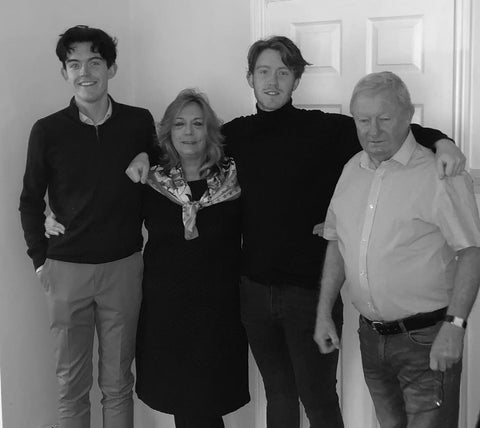
I feel guilty for the emotional burden this disease places on my family but, at the same time, I’m really grateful for their support. My mum is my best friend and my twin brother keeps me sane with his funny accounts of day-to-day life. And then there’s Ollie and my dad. I feel very lucky to be so loved.
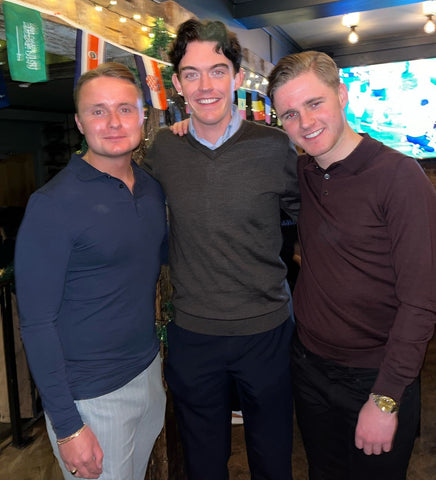
I also have a group of friends who are training for the National Three Peaks Challenge in June. The fact they want to climb the highest peaks of Scotland, England and Wales, walking 23 miles over a 3,064-metre ascent within 24 hours, in my name is amazing. They’ve already raised more than £6,100 for Brain Tumour Research and are hoping to raise a lot more. I can’t get my head around how underfunded research into brain tumours is and would encourage anyone who can to donate at www.justgiving.com/page/katiejenny3peakchallenge.
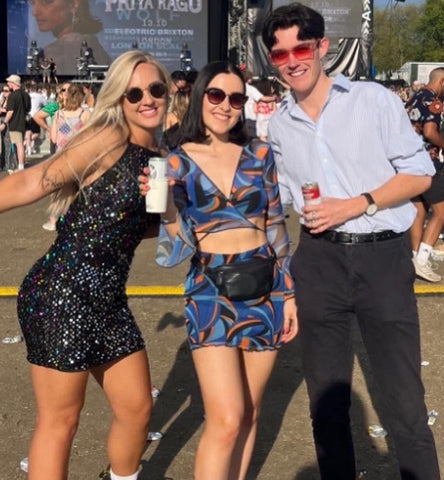
Charlie Pearson
April 2024
Brain tumours are indiscriminate; they can affect anyone at any age. What’s more, they kill more children and adults under the age of 40 than any other cancer... yet just 1% of the national spend on cancer research has been allocated to this devastating disease since records began in 2002.
Brain Tumour Research is determined to change this.
If you have been inspired by Charlie’s story you may like to make a donation via www.braintumourresearch.org/donate or leave a gift in your will via www.braintumourresearch.org/legacy
Together we will find a cure

